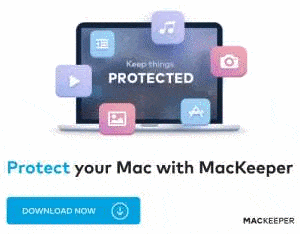Tools & Utilities for Security, Performance & Maintenance
As well as your Operating System, Browser, Email, Internet Security Software and main programs, there are other programs that can be used to improve the functionality of your device, to keep it up to date, to keep it secure and to keep it running smoothly. Most notably, these include Adobe Flash and Java if you use them. Almost everyone used to use Flash, but not any more, Java is also commonly used.
This is equally important whether you have a Windows PC/Laptop, Tablet or Phone, Apple computer, Tablet or Phone, Android Tablet or Phone, or even if you use Linux. None of these are safe if they are not kept up to date, though arguably Linux is the safest (and also the least used!). Check out the list of additional important software to keep your device running smoothly and up to date from the selections below.
Before downloading any software, there are rules you should follow. The first is to select to save it to your hard drive or device - do not select 'run' direct from the web site, unless you are very sure of the source - and then check the file with your anti-virus program(s)
before unzipping/running, or opening the file. You might think that downloading it to your device is unsafe, but if you run it from the web, it will be downloaded anyway AND run without you having the option to check it for viruses etc. first!
So, to do this, save the file to a place on your device where you can easily find it, preferably a standard Download folder that you have created, or the standard windows Download location (ensure you know where your browser saves files to [this is usually your Windows 'Downloads' folder], or set your
to always ask where to save to.
 Once the download has finished, do NOT just click on the download button/list in your browser, or in your download folder to run the file - unless you are
Once the download has finished, do NOT just click on the download button/list in your browser, or in your download folder to run the file - unless you are VERY
sure that the site is trustworthy and 'clean' (though beware, even trusted sites can become compromised at any time). Instead, open a file manager program, such as Windows Explorer, navigate to the file and right-click on it.
In the menu that will open, select 'check with antivirus.exe' (substitute this for the Internet Security/Antivirus program you use). When this has finished, it will tell you if any 'Threats' have been identified. Double-check by doing the same with a program like SuperAntiSpyware. If these both come back with no reported threats, then you're good to go - unzip it (if necessary), install and run it - but only once you've done these checks!
Most often used Additional Software:
- Adobe Reader (Adobe)
- Java Runtime (Java)
- Microsoft Office (Microsoft)
- Free Office (Softmaker)
- Libre Office (The Document Foundation)
Also included in your update checklist should be any Utilities or tools that you have installed, such as:
- CCleaner (Piriform.com)
- Advanced System Care (IoBit.com)
- Wise Registry Cleaner (WiseCleaner.com)
- Smart Defrag (IoBit.com)
- IObit Uninstaller (IoBit.com)
- Driver Update (IoBit.com)
- MozBackup (jasnapaka.com; an independent backup utility for Mozilla Firefox)
Or, of course, whichever ones you personally have installed - this is just a small selection.
Remote Connections and Helping Others:
 For those who ARE very IT capable and would like to be able to help friends and relatives, whether this is for technical help or safely using the internet, there are tools that allow you to connect remotely to other computers, laptops, tablets and even mobile phones, as long as you both have internet - so it's no good for fixing a broken internet connection! One of the easiest of these to use is Teamviewer, which is usable for free for personal use, but must be paid for if you are using it commercially, i.e., using it within your own business, or charging people for your help. There are many other similar tools, with varying ease of use, but Teamviewer is perhaps one of the easiest to use.
**Beware** if someone offers to connect to your device though, if you don't already know and trust them! Do NOT allow anyone to sweet-talk you into letting them remotely log into your computer or other device, especially if they claim to be from your bank, the police, or your internet service provider - these people will NEVER ask for access to your device remotely - this is a SCAM, just hang up on them (see Be Aware)!
In addition to these, make sure you regularly update your printer and scanner drivers and utilities, plus any other hardware drivers and utilities
BEFORE you update anything though, it is a good idea to backup any personal data and set a System Restore Point, just in case! If an updated driver then fails to work, try 'Rolling Back' the driver first, before attempting a full System Restore, as this has risks of it's own!
For those who ARE very IT capable and would like to be able to help friends and relatives, whether this is for technical help or safely using the internet, there are tools that allow you to connect remotely to other computers, laptops, tablets and even mobile phones, as long as you both have internet - so it's no good for fixing a broken internet connection! One of the easiest of these to use is Teamviewer, which is usable for free for personal use, but must be paid for if you are using it commercially, i.e., using it within your own business, or charging people for your help. There are many other similar tools, with varying ease of use, but Teamviewer is perhaps one of the easiest to use.
**Beware** if someone offers to connect to your device though, if you don't already know and trust them! Do NOT allow anyone to sweet-talk you into letting them remotely log into your computer or other device, especially if they claim to be from your bank, the police, or your internet service provider - these people will NEVER ask for access to your device remotely - this is a SCAM, just hang up on them (see Be Aware)!
In addition to these, make sure you regularly update your printer and scanner drivers and utilities, plus any other hardware drivers and utilities
BEFORE you update anything though, it is a good idea to backup any personal data and set a System Restore Point, just in case! If an updated driver then fails to work, try 'Rolling Back' the driver first, before attempting a full System Restore, as this has risks of it's own!
 There are, of course, many tools and utilities available but here is a list of some of the most useful tools and Utilities available now:
CCleaner (Piriform)
Advanced System care (IOBit)
Back to Top
There are, of course, many tools and utilities available but here is a list of some of the most useful tools and Utilities available now:
CCleaner (Piriform)
Advanced System care (IOBit)
Back to Top
 Once the download has finished, do NOT just click on the download button/list in your browser, or in your download folder to run the file - unless you are
Once the download has finished, do NOT just click on the download button/list in your browser, or in your download folder to run the file - unless you are  For those who ARE very IT capable and would like to be able to help friends and relatives, whether this is for technical help or safely using the internet, there are tools that allow you to connect remotely to other computers, laptops, tablets and even mobile phones, as long as you both have internet - so it's no good for fixing a broken internet connection! One of the easiest of these to use is Teamviewer, which is usable for free for personal use, but must be paid for if you are using it commercially, i.e., using it within your own business, or charging people for your help. There are many other similar tools, with varying ease of use, but Teamviewer is perhaps one of the easiest to use.
**Beware** if someone offers to connect to your device though, if you don't already know and trust them! Do NOT allow anyone to sweet-talk you into letting them remotely log into your computer or other device, especially if they claim to be from your bank, the police, or your internet service provider - these people will NEVER ask for access to your device remotely - this is a SCAM, just hang up on them (see Be Aware)!
In addition to these, make sure you regularly update your printer and scanner drivers and utilities, plus any other hardware drivers and utilities
BEFORE you update anything though, it is a good idea to backup any personal data and set a System Restore Point, just in case! If an updated driver then fails to work, try 'Rolling Back' the driver first, before attempting a full System Restore, as this has risks of it's own!
For those who ARE very IT capable and would like to be able to help friends and relatives, whether this is for technical help or safely using the internet, there are tools that allow you to connect remotely to other computers, laptops, tablets and even mobile phones, as long as you both have internet - so it's no good for fixing a broken internet connection! One of the easiest of these to use is Teamviewer, which is usable for free for personal use, but must be paid for if you are using it commercially, i.e., using it within your own business, or charging people for your help. There are many other similar tools, with varying ease of use, but Teamviewer is perhaps one of the easiest to use.
**Beware** if someone offers to connect to your device though, if you don't already know and trust them! Do NOT allow anyone to sweet-talk you into letting them remotely log into your computer or other device, especially if they claim to be from your bank, the police, or your internet service provider - these people will NEVER ask for access to your device remotely - this is a SCAM, just hang up on them (see Be Aware)!
In addition to these, make sure you regularly update your printer and scanner drivers and utilities, plus any other hardware drivers and utilities
BEFORE you update anything though, it is a good idea to backup any personal data and set a System Restore Point, just in case! If an updated driver then fails to work, try 'Rolling Back' the driver first, before attempting a full System Restore, as this has risks of it's own!
 There are, of course, many tools and utilities available but here is a list of some of the most useful tools and Utilities available now:
CCleaner (Piriform)
Advanced System care (IOBit)
Back to Top
There are, of course, many tools and utilities available but here is a list of some of the most useful tools and Utilities available now:
CCleaner (Piriform)
Advanced System care (IOBit)
Back to Top